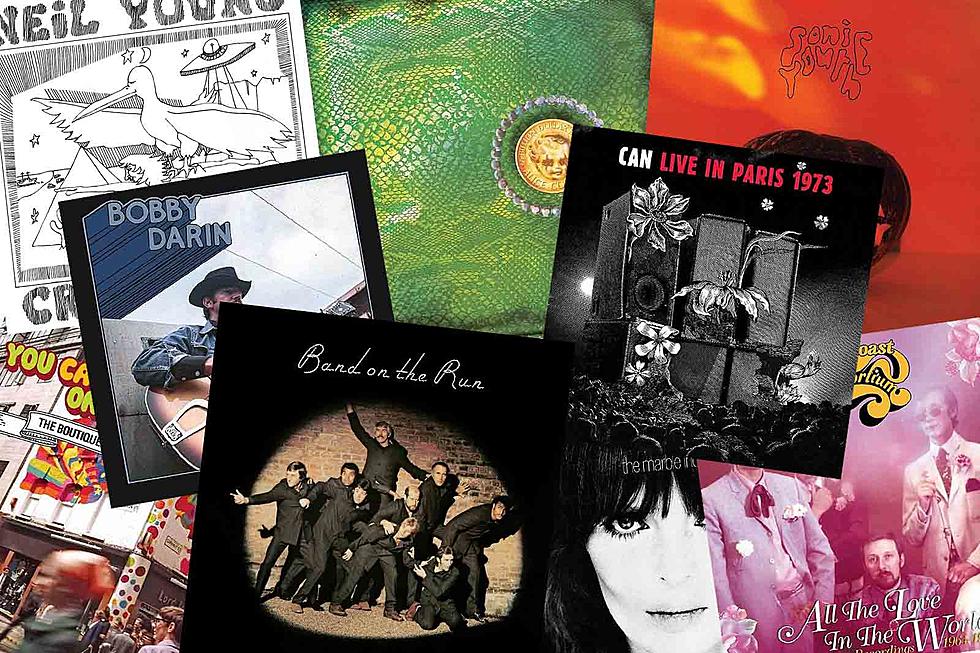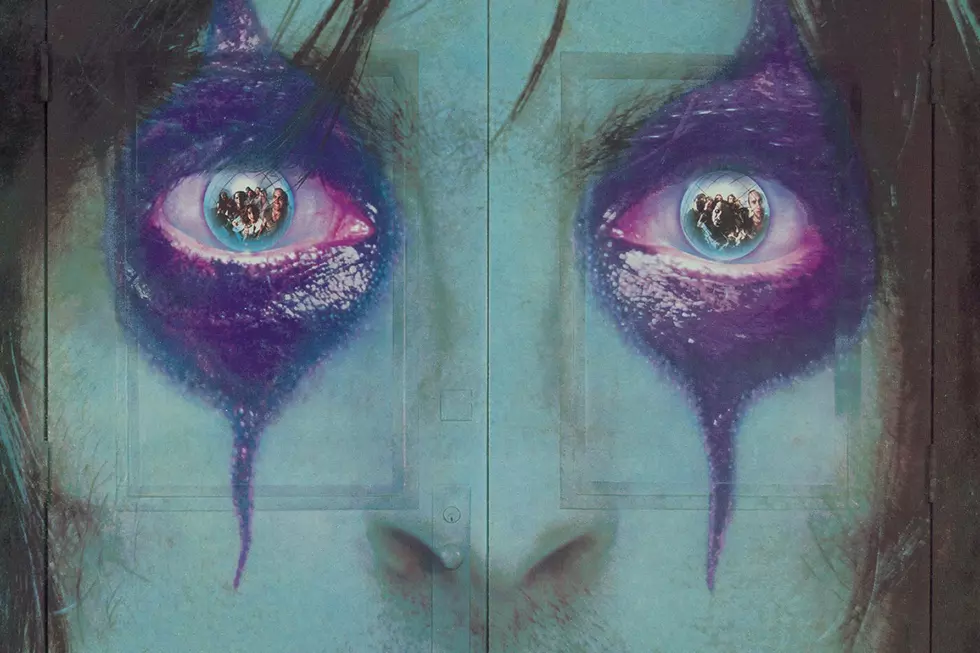In Defense of … Alice Cooper’s ‘DaDa’
Alice Cooper can’t recall making DaDa, but that doesn’t mean that the 1983 album isn’t worth remembering.
The rock legend’s 15th studio LP (eighth after breaking apart from the Alice Cooper band in the mid-’70s) is the third installment in Cooper’s “blackout trilogy.” That’s the term for the series of Special Forces, Zipper Catches Skin and DaDa – retroactively applied because Cooper was so deep in the throes of substance abuse in the early ’80s that he has no memory of recording any of the albums.
Although Forces and Zipper have their merits, DaDa is the lost classic of his career. It’s a strange semi-concept record that displays all of the hallmarks of classic Cooper: hard rock, killer melodies, macabre details and a bit of Broadway-style razzle dazzle. In the midst of an arc that involves multiple personalities, gender confusion, suicide and daddy issues (hence that winking title), the album is also a slice of dark comedy. After all, Cooper becomes a department store Santa and plays a used car salesman on the ’Murica send-up “I Love America.”
Listen to Alice Cooper's 'I Love America'
DaDa was probably too twisted to be a hit (even Cooper later called it “a really sick album”), although circumstances certainly conspired against it. In no shape to promote the LP with a tour, Cooper instead made his way to rehab and got clean for good after making the record. Warner Bros. essentially buried the album, failing to even release a single from DaDa in the States. Cooper had been on the label since “I’m Eighteen,” but with his mounting addiction struggles, the folks at Warner were only too pleased to have his contract fulfilled and their relationship severed (or, perhaps, guillotined).
Yet Warner Bros.’ lack of interest in Cooper helped make DaDa a more compelling album. According to longtime Cooper collaborator Dick Wagner, the label’s hands-off approach was freeing for the record’s primary creative team – Cooper, guitarist (and associate producer) Wagner and producer Bob Ezrin, who had built his career on releases for the Alice Cooper band. With no commercial expectations placed on the project, the guys ran wild in the studio.
Knowing that Cooper was about to be a former Warner Bros. recording artist, Wagner named a character “Former Lee Warner” – although it was later changed to Former Lee Warmer, suggesting that "Lee" might be some sort of undead creature. The album’s title wasn’t just a joking reference to parent-child matters (Cooper growls “I just want to tell you you’re a lousy Dad” on “Enough’s Enough”), but also a nod to the Dada artistic movement, which rejected the norms of society in favor of chaos. Surrealism, which came out of Dada, was represented on the album cover via a riff on Salvador Dali’s Slave Market With the Disappearing Bust of Voltaire painting.
All of that could have become self-indulgent quickly, but even in his blackout phase, Cooper was too indebted to his ’60s music heroes to sacrifice songs for concept. As a story, DaDa makes about as much sense as Welcome to My Nightmare, because the melodies rightly take precedence over the plot. Logic goes out the window (keeping DaDa thoroughly Dada) as Cooper and Co. deliver a series of tuneful vignettes.
Listen to Alice Cooper's 'Scarlet and Sheba'
Inspired by flirty waitresses, “Scarlet and Sheba” presents a pair of seductive torturesses in a bold power ballad. Cooper runs his mouth a mile a minute as a truly Bad Santa on the hook-laden “No Man’s Land.” “Dyslexia” mixes bad puns and bouncy New Wave, but is a real head-sticker. “Former Lee Warmer” seems to take both its sonic and thematic cues from Phantom of the Opera.
On the dark end of the scale is the sinister title track, which opens the record with Floydian foreboding (no surprise that it was composed wholly by Ezrin, a Pink Floyd collaborator) and a child’s voice crying for “da-da” in the darkness. On the other end of that spectrum is the gloriously goofy “I Love America,” which finds Cooper sending up himself, his country, capitalism, misogyny, government, war and anything else that gets in the way of his performance. It’s sledgehammer satire delivered by a Hollywood vampire.
In between the haunted-house sound effects and the more comedic moments, DaDa also allows room for Cooper to delve into some of the actual demons that were ruining his life at the time. No stranger to confessional songwriting (see his 1978 rehab-themed LP From the Inside), Cooper admits to some deeply disturbing problems on the album. It was likely no accident that one song was titled “Enough’s Enough,” while other songs dealt in the “personalities” that were brought forth by Cooper’s drinking and drugging.
Listen to Alice Cooper's 'Pass the Gun Around'
But no song was more of a cry for help than “Pass the Gun Around,” DaDa’s dark closer that combines AM pop sensibilities with Beatlesque guitar by Wagner and true details from Cooper’s unhappy life. Cooper begins the tune by describing a character who requires vodka to start his day and is bleeding from his eyes due to the stuff in his body (both of which happened to Cooper). Soon, he switches to first person – “I’ve had so many blackout nights before / I don’t think I can take this anymore,” he wails. Cooper begs to be put out of his misery in the chorus.
The soaring ballad ends abruptly with a loud noise, though it sounds less like a gunshot than a lightning bolt (perhaps forecasting Cooper’s sobering wake-up call?). After DaDa came out and promptly flopped – failing to make the U.S. charts and barely scraping the U.K. ones – Cooper got clean and took an extended hiatus from recording. He returned as a pop-metal singer in the late ’80s, with songs positioned to hit the charts, but albums that lacked the craft, intricacies and sonic variety of his best solo work.
In so many ways, DaDa was the end of an era – Cooper’s time with Warner Bros., his partnership with Wagner (the two would never again work on a full album together) and his collaboration with Ezrin (who wouldn’t return, in full, to the world of Alice Cooper until 2011). DaDa was locked in the attic, dismissed as part of Cooper’s blackout era and disregarded for years by everyone but the most dedicated Cooper fans. Cooper has never performed any of the LP’s nine songs in concert. Decades later, the album deserves to be reassessed. Even in a severely compromised state, Cooper was capable of disturbingly great music.
Alice Cooper Albums Ranked
More From Ultimate Classic Rock









